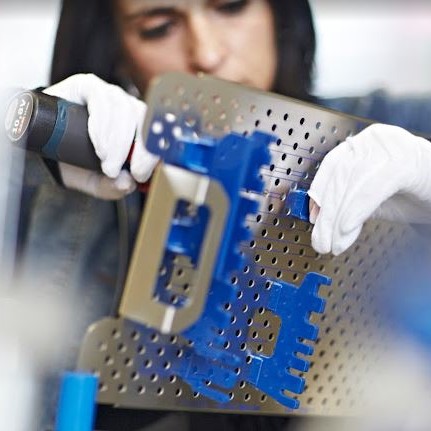These convictions, upheld by Baudouin d’Hérouville, Partner and Head of MidCap at Initiative & Finance, reflect the approach taken by the management company. Until 2021, the company invested mainly in French-speaking areas through its smallcap fund. With the launch of its “Tomorrow” mid-cap fund in 2022, it has, in geographical terms, expanded its investment zone into continental Western Europe with a more specific focus on Germany, Italy, Switzerland and the Benelux countries. »
International acquisitions, the key to unparalleled development
The rise of digital channels has considerably facilitated the expansion of companies into international markets, sometimes allowing them to move away from simply having a local presence. While it is essential, under most business models, to strengthen distribution and communication networks and improve internal processes, digitization is one of many potential areas of development.
International external growth, i.e. the acquisition of a company located outside the country of origin, is a faster and more powerful lever of acceleration, but is a method that remains under-exploited. The acquisition of a foreign entity allows the company to achieve unparalleled economies of scale, by gaining access to a customer base that it was previously unable to access. The company also benefits from the reputation of its target, its expertise, its human resources, new skills and new opportunities.
Achieving similar results through organic growth would take much longer and be more costly. According to Baudouin d’Hérouville: “A transaction of this type is a real driver of acceleration in increasing market share, but represents a huge leap into the unknown for many French SMEs and mid-caps that are doing it for the first time. We regularly support them on the challenges of international expansion, particularly when they have never previously had any financial partners as shareholders.” These transactions are usually financed by cash, debt or, where necessary, by a capital increase in which the fund participates.
The keys to a successful transaction
Carrying out an international acquisition cannot be done on the hoof and poses risks if a growth strategy is not rigorously implemented. The main points to consider? Properly prepare an external growth strategy by carefully identifying the type of target company, the target size and priority countries. Obtain advice during the negotiating phase and plan potential recruitments. Above all, keep the issue of integration in mind, and the risk of areas of relatively strong cultural tension. “A detailed assessment needs to be carried out and support needs to be provided to ensure that the acquired company is properly integrated into the group and that all employees are keen to be part of a new story”, explains Baudouin d’Hérouville.
The post-acquisition phase can be compared to the submerged section of an iceberg – even though it is not the most visible part, it should not be neglected. The support offered to the company is therefore key. “An acquisition requires regular post-deal dialogue between the manager of the acquiring company and the acquired company’s teams. You need to spend time on it and make trips, Baudouin d’Hérouville believes. This is all the more important when there are cultural differences between the country of the parent company and the country of the acquired company.”
The acquirer’s management team plays a key strategic role in this crucial phase. One of the keys to success? Spending time with the teams to learn about the business climate and to build trust, drive ambition and define a framework for governance, reporting and information system security. Communication with the teams is the key to smooth integration. And communication issues are not restricted to internal dialogue. You also need to give thought to how you are going to inform customers and suppliers.
Support at every stage
Being supported by professionals with experience of this type of transaction is the major reason why a number of companies in Initiative & Finance’s portfolio have embarked on the adventure of international expansion in recent months.
« We are active shareholders in the companies we support at these crucial stages of development. As true partners of the managers, our teams share their experience and provide them with assistance, from suggesting targets to closing the acquisitions, so that these transactions lead to further success for all parties involved. An acquisition is a Company Project that must be understood and supported by all », concludes Baudouin d’Hérouville.

 Back to the thematic folder
Back to the thematic folder

